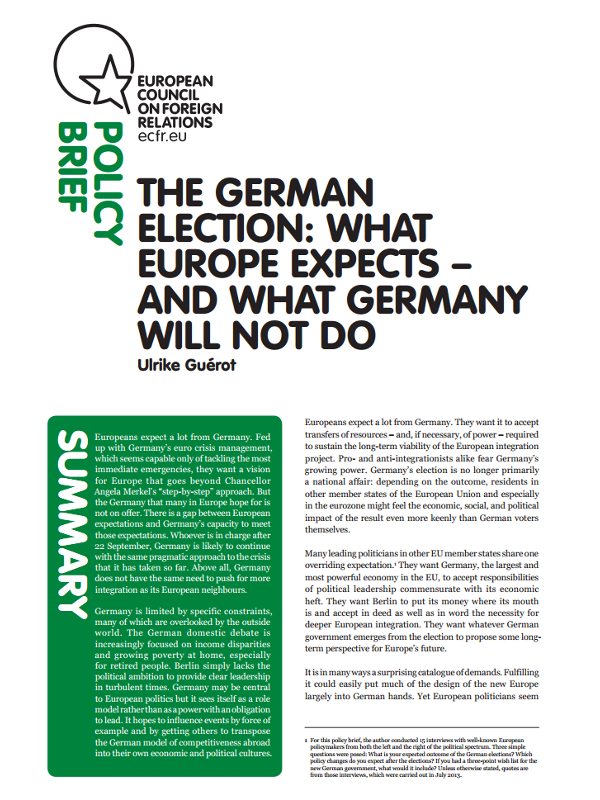The German election: What Europe expects – and what Germany will not do
Germany will not provide clear leadership for Europe
Europeans expect a lot from Germany once its election is out of the way – in particular a vision for Europe beyond simply dealing with emergencies. But they are likely to be disappointed.
With its own domestic concerns, such as income inequalities and demographic decline, Germany simply lacks the political ambition to provide clear leadership for Europe in turbulent times. Despite its central role in European politics, it sees itself as a role model rather than a leader, and has a legalistic approach to reform rather than an attachment to grand plans.
In a new ECFR paper – “The German election: what Europe expects – and what Germany will not do” – Ulrike Guérot warns that Germany’s pragmatic approach is likely to continue, despite many European leaders wanting Berlin to take the lead in three main areas:
Banking union – Germany is dragging its feet on an issue that many see as an overriding priority both to disentangle state from bank finances and to stabilise the European project. But legal and political hurdles in Germany are unlikely to disappear after the election, unless the return of dangerous market instability forced it to act.
A growth strategy – rather than respond to calls for them to alter their economic policy to stimulate the entire European economy, Germans believe their economic success is the model for others to copy, through hard work, austerity and reform.
European foreign policy – many believe Europe cannot have a strategic focus without Germany, but Germany itself lacks such a focus, preferring commerce to diplomacy.
“Europe wants Berlin to put its money where its mouth is, and emerge from its election with a vision for the EU’s future. But Germany lives in a different world to other EU members, with its own preoccupations and concerns. There is a gap between European expectations of a more constructive German role and Germany’s capacity to meet these expectations.” Ulrike Guérot
The European Council on Foreign Relations does not take collective positions. ECFR publications only represent the views of their individual authors.



